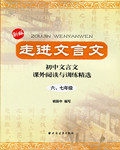题目内容
What fun it is to walk alone with full moon hanging in the sky.
A. /; a B. a; / C. the; / D. a ;the
A
【解析】
试题分析:考查冠词辨析。冠词a仅用在可数名词单数前面,表示“一”的意义,但不强调数目概念。The+形容词,表示一类人或者事物,the+名词,表示特指。题中fan为不可数名词,full moon指一轮满月。句意:与一轮满月在星空下漫步是多么有趣啊!故选A。
考点:考查冠词辨析。

练习册系列答案
 走进文言文系列答案
走进文言文系列答案
相关题目